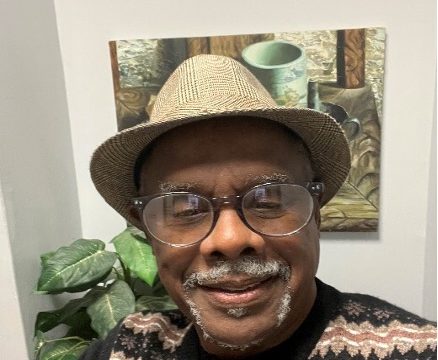
I’d be less than honest if I didn’t admit to the chills that ran down my spine a few years ago when my youngest son called me late one night during his drive across country to California with his new bride.
SON: Hey dad, I realize that it’s late but wanted to check in with you while we’re on the road.
ME: Thanks. I was up waiting to hear from you son. Where are you?
SON: We stopped for a bathroom break in a gas station in some small town not far from Jackson, Mississippi.
ME: Oh my! Look, fill up your tank and don’t stop anywhere until you get the hell out of Mississippi.
Despite a hastily made toddy, I still couldn’t get back to sleep until I got a call from him three hours later assuring me that he was no longer in Mississippi. Sorry but sometimes facts can cause one to broad brush individuals and, in this instance, even states (hello Florida!)
Now call it sheer luck, coincidence or something else, but when you delve into history, as I do sometimes in this space, you’ll sometimes come across largely unknown facts and sometimes parallels. Case in point is my recent narrative on 14-year-old Emmett Till who was murdered in Money, Mississippi in August, 1955.
Developing the “Remembering Emmett” piece led me to a chilling discovery of Reverend George Lee, a name I was vaguely familiar with but rarely thought about over the years. I discovered that Lee was cut down by an assassin’s in Mound Bayou, Mississippi, less than an hour’s drive from the Money, where Till breathed his last breath.
Now because it didn’t get much play, you may not have heard much about Rev. George Washington Lee, one of the first African Americans registered to vote in Humphreys County, Mississippi since Reconstruction. For that, I suppose you could lay the blame on your “American History” books and classes that moved on to the “real history” of the U.S. after obligatory brief mentions of M. L. King, Jr., George Washington Carver, Carter G. Woodson, Rosa Parks and other beacons of Black history.
Described as a “tan-skinned, stumpy spellbinder,” the gifted George Lee, who pastored three small churches, used his pulpit to urge others to vote amid fierce resistance and daily death threats.
In April 1955, Lee was a speaker at a local meeting which drew a crowd of more than seven thousand to the all-Black town of Mound Bayou. Simeon Booker of Jet Magazine observed how Lee’s down-home dialogue electrified the crowd.
But less than a month after that speech, on May 7, a convertible pulled alongside Lee’s car just before midnight. An unidentified assailant fired three shot-gun blasts shattering Lee’s jaw. Lee died before he could make it to the hospital. The attack came days after he had received another threatening note demanding that he drop his name from the voting rolls.
Medgar Evers, himself assassinated a decade later in Jackson, Mississippi, always doubted that any FBI investigation of the Lee killing took place since there was never any public report or even a solid rumor as to what was in the report. Said Evers at the time, “Rev. Lee’s murder was a cold-blooded answer to demands for equal treatment coming from more Mississippi Blacks and was backed by the lies of the sheriff and local police.”
Thanks to the dogged persistence of Medgar Evers and others, the murders of Lee and others in Mississippi did not escape international news cycles which drew thousands of journalists, cameras, civil rights activists to jam packed funerals.
As I pointed out in my recent piece on Emmett Till, “A picture is worth a thousand words.” That said, there’s a good chance that you’d recognize the face of Mamie Till, the mother of Emmett Till. But the name of Rose Lee, unless you’re a Black history buff, maybe not. You see, Rose was Reverend George Lee’s wife.


Emmet Till (before and after)


George Lee (before and after)
Now another connection between Rose Lee and Mamie Till was their decision to have their loved ones laid out in open caskets in the words of Mamie Till, “to let the world see what they did to my boy.” These two assassinations are undeniable examples of the dangerous historical intersection between Blacks and Jim Crow when it came to exercising the right to vote.
So readers, who among you will be shocked to hear that Lee’s killers were never found and, in the case of the murderers of Emmett Till were never prosecuted?
Wrote poet William Cullen Bryant, “Truth crushed to earth will rise again.” My hope is that truth will not skip over the blood-stained soil in Mound Bayou Mississippi, what happened in Money’s Tallahatchie River…or banned from books that teach actual Black history.
My last word on Mound Bayou and Money, Mississippi.
Hopefully, one day I will visit those two places. I owe that to myself and to memories of Emmett Till, George Lee and hundreds of unknown others who paid the ultimate price for the right to vote and other freedoms we enjoy to this day.
In the end, I’m so glad that my son made it safely through Mississippi and, since then, has blessed me with a beautiful grandson and granddaughter on the way.
Unfortunately, Tills, Lees and scores of others were not so fortunate.
Terry Howard is an award-winning trainer, writer, and storyteller. He is a contributing writer with the Chattanooga News Chronicle, The American Diversity Report, The Douglas County Sentinel, Blackmarket.com, co-founder of the “26 Tiny Paint Brushes” writers guild, recipient of the 2019 Dr. Martin Luther King, Jr. Leadership Award, and third place winner of the 2022 Georgia Press Award.


